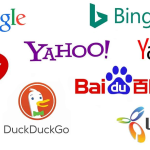Large corporations acknowledge the untapped opportunities of decentralized technology—to the extent that 52% of Fortune 100 companies have invested in blockchain and Web3. Look no further than this article if you wish to join the many businesses adopting decentralized technology in their tech stack.
What is Decentralized Tech?
Before we start, let’s discuss the fundamentals of decentralized technology and why numerous companies are intrigued by its potential. Decentralized technology involves spreading control and data throughout a network of nodes rather than relying on a single central authority. In a conventional centralized system like a physical bank, one entity controls the network and its data. Decentralized technology eliminates the sole authority and spreads control among various peer-to-peer (P2P) network participants. This enables people to communicate with each other without any middlemen involved.
How does this relate to the functioning of businesses? Decentralization enables business owners to:
- Enhance security: Decentralized technology enhances security by distributing data across a network of nodes, making it much harder for hackers to compromise the entire system. Blockchain technology uses cryptographic techniques to ensure data integrity and prevent unauthorized modifications, while advanced encryption methods protect data in transit and at rest. Consensus mechanisms make it extremely difficult and cost-prohibitive for malicious actors to manipulate the network. Decentralized identity solutions give users greater control over their data, reducing identity theft risk.
- Improve operational efficiency: Decentralized technology improves efficiency by automating processes through smart contracts, reducing the need for intermediaries and manual intervention. This leads to faster, more efficient operations. Decentralized systems streamline complex processes, such as supply chain management, by providing a shared, tamper-proof ledger accessible to all participants. Decentralized file storage solutions improve data accessibility and reduce the risk of data loss. In contrast, decentralized networks can handle high volumes of transactions and data processing, improving overall system performance and scalability. Tokenization and digital assets enable faster, more cost-effective transactions and settlements, particularly in cross-border scenarios.
- Boost transparency: Decentralized systems, particularly those built on blockchain technology, boost transparency by maintaining a public, immutable record of all transactions and interactions. This level of transparency helps build trust among stakeholders and reduces the risk of fraud. Smart contracts ensure that all parties adhere to predefined rules and conditions, with the execution of these contracts visible to everyone on the network. Decentralized governance models allow for transparent decision-making processes, while transparent supply chain management enabled by decentralized tech helps businesses demonstrate the authenticity and provenance of their products, enhancing consumer trust and brand reputation. Decentralized financial (DeFi) platforms provide open, auditable code and real-time transaction data, allowing users to verify the system’s integrity and make informed decisions.
Utilizing decentralized technology has the potential to handle a wide range of tasks, like overseeing supply chain operations and executing smart contracts via the blockchain.
5 Decentralized Tech Ideas for Your Business
Now that you know the ins and outs of decentralized tech, let’s discuss the Web3 products and services currently taking the business world by storm.
1. Blockchain Supply Chain Management
The traditional method for managing supply chains often involves intricate webs of suppliers, manufacturers, distributors, and retailers. This complexity can result in challenges like:
- A lack of clear visibility. Without a centralized and transparent system, it can be difficult for stakeholders to track the movement of goods and materials throughout the supply chain, leading to confusion and potential delays.
- Inefficiencies in the supply chain. The complexity of traditional supply chains can lead to inefficiencies such as redundant processes, miscommunication, and delays in decision-making, which can increase costs and reduce overall performance.
- Susceptibility to fraudulent activities or mistakes. The lack of transparency and the involvement of multiple parties in traditional supply chains can create opportunities for fraudulent activities, such as counterfeiting or diversion of goods, as well as unintentional mistakes that can be difficult to identify and rectify.
Decentralized technologies, particularly blockchain, present an innovative solution to address these issues. Blockchain uses a distributed ledger system to document transactions across different computers in a way resistant to tampering.
Within supply chain management, companies use blockchain technology to improve transparency and mitigate the risk of fraud.
2. Decentralized Finance Integrations
Incorporating Decentralized Finance (DeFi) into your business activities offers a revolutionary way to access financial services and products without needing middlemen. DeFi is built on blockchain technology and smart contracts, which enable trustless, peer-to-peer transactions and eliminate the need for traditional financial intermediaries. This opens up a world of opportunities for businesses looking to streamline their financial operations, reduce costs, and access new sources of capital.
By utilizing blockchain technology and smart contracts, businesses can:
- Utilize DeFi platforms to lend, borrow, and trade assets directly with their peers. Decentralized lending platforms like Aave and Compound allow businesses to earn interest on their idle assets or borrow funds using crypto as collateral.
- Decrease dependence on banks. DeFi enables businesses to access financial services without relying on traditional banks, which often have strict requirements, high fees, and slow processing times.
- Cut transaction costs. By eliminating intermediaries, DeFi can significantly reduce the costs associated with financial transactions, making it more affordable for businesses to send and receive payments.
Asset tokenization also allows businesses to:
- Release liquidity from non-liquid assets. By tokenizing assets such as real estate or artwork, businesses can unlock their value and make them more easily tradable on DeFi platforms.
- Generate funds through token sales. Tokenization enables businesses to raise capital by selling tokens representing a stake in their assets or revenue streams, providing an alternative to traditional fundraising methods.
- Broaden investment portfolios. DeFi allows businesses to invest in a wide range of tokens and digital assets, diversifying their portfolios and potentially earning higher returns than traditional investments.
DeFi also streamlines cross-border payments and remittances using stablecoins; cryptocurrencies pegged to stable assets like the US dollar. Using stablecoins, businesses can send and receive payments across borders quickly and at a fraction of the cost of traditional international wire transfers. This is particularly beneficial for businesses with global operations or supply chains, as it can significantly reduce the time and expense associated with cross-border transactions.
The integration of DeFi into business operations is still in its early stages, but the potential benefits are vast. As more businesses begin exploring and adopting DeFi solutions, we expect to see a significant shift in how financial services are delivered and consumed. However, it’s important for businesses to carefully evaluate the risks and challenges associated with DeFi, such as regulatory uncertainty and the potential for smart contract vulnerabilities, before fully embracing this new paradigm.
3. Smart Contracts
Smart contracts are changing how businesses operate by automating and carrying out agreed-upon tasks directly on blockchain networks. Your company can use smart contracts to simplify tasks like settling payments and enforcing contracts, reducing how much you spend on administration and the possibility of making mistakes.
With smart contracts, transactions happen automatically once specific conditions you set are met, making the whole process quicker since you don’t need to input information manually.
Smart contracts also boost transparency and trust between parties by creating a secure record of agreements and transactions that neither party can alter.
By automating routine duties and enforcing agreements securely and openly, smart contracts help companies improve their operations, manage risks effectively and foster innovation across sectors like:
- Finance: Smart contracts automate and streamline financial processes, such as creating and managing financial instruments, executing payments, and enforcing agreement terms without intermediaries. They facilitate the creation and trading of digital assets, like tokens and cryptocurrencies, enabling new forms of investment and fundraising. In DeFi, smart contracts power decentralized lending, borrowing, and yield farming platforms, providing users with novel opportunities to earn interest and access financial services.
- Supply chain management: Smart contracts enhance supply chain transparency and efficiency by creating a shared, tamper-proof ledger that records every process step, from raw materials to finished products. They automate various processes, such as payments, quality control, and inventory management, based on predefined conditions, reducing manual intervention and paperwork. Smart contracts also facilitate the creation of decentralized marketplaces, enabling direct transactions between buyers and sellers without intermediaries.
- Real estate: Smart contracts streamline property transactions by creating a secure, transparent, and immutable record of ownership and transfer, reducing the risk of fraud, errors, and disputes. They automate various aspects of the real estate process, such as listing, due diligence, escrow, and title transfer, based on predefined conditions, minimizing manual intervention and intermediaries. Smart contracts also enable fractional ownership and tokenization of real estate assets, increasing liquidity and accessibility in the market.
- Digital rights management (DRM): Smart contracts create a secure and transparent system for managing and enforcing digital rights, allowing content creators to automate the licensing and distribution of their digital assets while ensuring fair compensation. They define the terms and conditions of licensing agreements and automatically enforce them based on predefined triggers, such as distributing royalty payments whenever content is accessed or used. Smart contracts also facilitate the creation of decentralized content platforms and marketplaces, enabling creators to directly connect with their audience and monetize their work without intermediaries.
4. Decentralized Data Storage
Businesses today are constantly grappling with the challenge of securely storing and managing large volumes of sensitive data. The conventional centralized data storage methods are vulnerable to:
- Security breaches: Centralized data storage systems are more susceptible to security breaches because they present a single point of failure. If an attacker gains access to the central server or database, they can potentially compromise all the data stored within. This can occur due to weak or stolen credentials, software vulnerabilities, or insider threats. In a centralized system, once the perimeter security is breached, the attacker can access a vast amount of sensitive information. Additionally, if the central server is physically damaged or experiences hardware failures, it can lead to data loss or interruption of services.
- Cyber-attacks: Centralized data storage systems are attractive targets for cyber-attacks, such as distributed denial-of-service (DDoS) attacks, ransomware, and malware infections. DDoS attacks can overwhelm the central server with traffic, making it unavailable to legitimate users and disrupting business operations. Ransomware attacks can encrypt the data stored on the central server, rendering it inaccessible until a ransom is paid. Malware infections can compromise the integrity of the stored data and provide unauthorized access to sensitive information. Centralized systems are more vulnerable to these attacks because they rely on a single server or a few servers, making it easier for attackers to locate and target them.
- Unauthorized intrusions: Centralized data storage systems are more vulnerable to unauthorized intrusions because they often rely on perimeter-based security measures, such as firewalls and access controls. If attackers bypass these security measures, they can gain unauthorized access to the stored data. This can occur through various means, such as social engineering techniques, stolen credentials, or exploitation of software vulnerabilities. Once attackers gain access to the central server, they can freely move within the system, accessing and exfiltrating sensitive data. Centralized systems also face risks from insider threats, where employees or contractors with legitimate access to the system can misuse their privileges to steal or manipulate data.
Decentralized data storage uses blockchain technology and peer-to-peer networks to store data. Each data fragment is encrypted and spread across multiple network nodes, making them more resilient to security breaches, cyber-attacks, and unauthorized intrusions. By eliminating the single point of failure and using encryption and consensus mechanisms, decentralized systems make it much harder for attackers to compromise the entire network or access the stored data. Even if a single node is compromised, the data remains secure on other nodes, ensuring the integrity and availability of the information. Decentralized systems also protect against insider threats, as no single entity has complete control over the data or the network.
5. Decentralized VPNs
A Virtual Private Network (VPN) is a service that helps protect your online privacy and security by creating a private network connection over the Internet. When you use a VPN, all your internet traffic is routed through an encrypted tunnel, making it difficult for anyone to intercept or monitor your online activities.
Traditional VPNs rely on centralized servers owned and operated by a single company. While these VPNs claim to protect your privacy, they can still collect and store data logs of your online activities. If the VPN company is compromised, hacked, or compelled to share information by legal authorities, your data could be at risk.
A Decentralized Virtual Private Network (DVPN) takes privacy and security to the next level by eliminating the need for centralized servers and data logs. Instead of relying on a single company’s infrastructure, DVPNs use a peer-to-peer network of nodes to route your internet traffic. This decentralized approach makes it virtually impossible for anyone, including the DVPN service provider, to monitor or track your online activities.
When you connect to a DVPN, your internet traffic is encrypted and split into small packets sent through multiple network nodes. Each node only knows the previous and next node in the chain, making it extremely difficult to trace the origin or destination of the data. This process ensures that your online privacy remains intact, as no single entity has complete access to your browsing history or online activities. For businesses, using a DVPN offers several advantages:
- Enhanced security: DVPNs protect your company’s sensitive data, such as financial information, client records, and intellectual property, from potential hackers or cybercriminals.
- Increased privacy: DVPNs eliminate centralized data logs, ensuring your company’s online activities remain private and confidential, even from the VPN service provider.
- Remote work security: With more employees working remotely, DVPNs provide a secure way to access company resources and communicate with colleagues without compromising the organization’s security.
- Bypass geo-restrictions: DVPNs allow your employees to access content and services that may be restricted in certain regions, enabling them to work seamlessly from anywhere in the world.
A Decentralized Virtual Private Network offers a more secure and private alternative to traditional VPNs. By leveraging a peer-to-peer network and eliminating centralized data logs, DVPNs provide businesses with enhanced online privacy and security, ensuring that their sensitive information remains protected from prying eyes.
Final Thoughts
Businesses are starting to realize the power of decentralized technologies to transform their operations, improve security, and foster innovation. From managing supply chains to financial services and safeguarding online privacy, decentralized technology offers many advantages for businesses of all sizes.
By adopting decentralized tools like blockchain-based supply chain management, integrating DeFi solutions, utilizing smart contracts, and employing decentralized VPNs, businesses can reduce their expenses and automate their business operations.
©2024 DK New Media, LLC, All rights reserved.
Originally Published on Martech Zone: Practical Steps for Businesses to Integrate Decentralized Technologies














